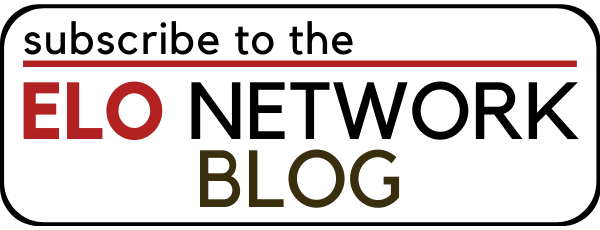
NOTE: This is Part V of a series of blog posts related to cross-cultural fluency and the family business.
The family business. A cesspool of nepotism? Or, a beacon of collaboration for the greater good? A source of contention and friction? Or, is it an opportunity to help out and sustain a family legacy? The answer depends upon one’s perspective and that can be shaped significantly by an individual’s cultural vantage point.
This unique view of the family business shared by many other subcultures is a third important way to understand immigrants generally, from varied backgrounds, in contrast to the Dominant Culture in Canada. This is the third of six factors in what I term the “Cross-Cultural Fluency Model,” a way of seeing and understanding commonalities among different ethnic groups, or subcultures, within the Canadian mosaic.
Family businesses are perceived very differently between a Subculture and the Dominant Culture. In many subcultures, the business is not peripheral to the family but is indeed central to the family. “Family businesses” in Western culture can imply a degree of nepotism: family members on a board of directors, a spouse as president, and unemployable cousins sprinkled in menial jobs. Further, the common “paternalistic” structure of a family business is seen as a condescending, meddling atmosphere subject to the personal discretion of the founder—as opposed to an objective meritocracy. There are, of course, successful family firms in Canada that are part of the Dominant Culture, but they are less common. A “family firm” may be viewed as a starting point, but not a permanent operating model. A family business is seen as a “mom-and-pop” operation that, if truly successful, will progress to so-called professional management. In the United States and Canada, the emphasis has been on the transfer of power to professional managers and the separation of control and ownership.
In subcultures, the approach can often be quite different. Take, for example, the Chinese community within Western countries such as Canada. This is a broad generalization, but there have been analyses of family businesses that are part of a phenomenon often termed the “Overseas Chinese Diaspora.” The Overseas Chinese Diaspora comprises a network that extends not only throughout southeast Asia but into Western countries such as Canada. The view and role of the family business within the Overseas Chinese Diaspora—which is manifested in various Western countries—is quite distinct from the mainstream Western culture.
There are several unique aspects of the business system of the Overseas Chinese Diaspora. Gordon Redding, the author of The Spirit of Chinese Capitalism, explains that one overwhelmingly consistent theme in the Overseas Chinese Diaspora is the fundamental role of the family businesses. Redding explains that the Overseas Chinese Diaspora reflects a notion he calls “patrimonialism” which encompasses themes such as paternalism, hierarchy, responsibility, mutual obligation, family atmosphere and protection. The very word “patrimonialism” causes Westerners to bristle, as it smacks of a male-dominated hierarchy. In the Chinese Overseas Diaspora, however, the emphasis is on paternalistic decision-making in the family’s collective best interest. Nepotism and paternalism do not carry the same negative connotations within the Overseas Chinese Diaspora. To them, the interests of a family and its business are intertwined; the survival and prosperity of one is tied to the other. Businesses are then run in a similar matter where the family looks after its family and staff.
For the Overseas Chinese, the cliché phrase “run your family as a business, and your business as a family” is particularly relevant. Their families and businesses are intertwined. Sometimes this dynamic is reinforced due to migration patterns. As the families who are part of the Overseas Chinese Diaspora relocate to various countries, the family becomes a basic necessity for survival in a foreign (and often hostile) locale. Even though these family businesses and members of the Overseas Chinese Diaspora transition from “survival mode” into integrating and thriving in the larger community, this mentality of patrimonialism carries over.
The family business is often viewed as central to the well-being of the family. Redding explains that members of a family among the Overseas Chinese are often “motivated by the pragmatic exigencies of protecting and enhancing the family resources on which they, in turn, are very dependent.” The Overseas Chinese view family as the bedrock of their lives, the anchor in a world with competing interests. The notion of family “extends beyond its members to encompass its property, its reputation, its internal traditions, its ancestors’ spirits, and even its unborn future generations.”
While there may be similarities to family businesses among the Dominant Western Culture, the mode of the family business among the Overseas Chinese model remains distinct. Redding explains that the special nature of the Chinese family business is that it retains many of the characteristics of a small-scale business, such as paternalism, opportunism and flexibility. The Chinese family business does not follow the Western pattern of professionalization, bureaucratization, and neutralization to anywhere near the same extent.
While the family business is a transitory stage among the Dominant Culture in Canada, for members of the Overseas Chinese Diaspora a family business model is the preferred way of doing business. For the Overseas Chinese, Redding notes, the family provides roots: “It is hard for a Westerner to understand the extent to which the Chinese depend on family; how they look out and see the vacuum of no-man’s-land—traversed as it may be by the networks they construct—but no-man’s-land nonetheless.” Within the culture, the family business is a credible way of running a business and is particularly well-suited to the environments of the Overseas Chinese where there was a need for self-reliance and independence.
The bottom line is that the family business is viewed very differently among the subculture groups, and here we have highlighted one particular example, the Overseas Chinese Diaspora. The above discussion demonstrates that among the Subculture that the family business is central to the family. This is often very distinct from the Dominant Culture where it is peripheral to the family. Further, in the Dominant Culture, it is more commonly viewed as something that families grow out of—but that is not the case for many subcultures.
To understand newcomers to Canada it is important to recognize the difference between Subcultures—of different ethnic backgrounds—and the Dominant Culture. In Subcultures, the approach towards the family business is very different than in the Dominant Culture. The importance of understanding the contrasting views of the family business is one more pillar of the cross-cultural fluency model which helps in understanding newcomers from various cultural backgrounds as they fit into Canada. At Nicola Wealth, the firm where I work, cross-cultural fluency is an asset in understanding and relating to newcomers who have started family businesses and who have prospered, generally, by playing the long game.
